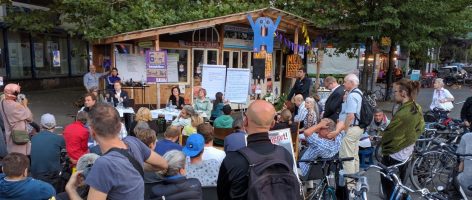
Jörn Quitzau, AGSR Fellow
AGI is pleased to welcome Jörn Quitzau as an AGI/GMF Fellow with the American-German Situation Room in Washington, DC, in April 2018. Joern Quitzau (PhD, University of Hamburg) is a Senior …

The Resurgence of Anti-Semitism: German vs. American Responses
Anti-Semitism in Germany Germany has a rocky history with anti-Semitism—to say the least. After WWII, reconciliation with Jewish populations became a large part of Germany’s foreign and domestic policy, and …

Civil Society Can Lead the Way
Germans and Americans have a great many important common values and common interests, yet their respective national narratives—how they define their history and place in the world today—differ considerably. Despite …
‘Real American’ immigrants fight to preserve the best of the U.S.
In 1975, the Communist Pathet Lao emerged victorious in a civil war that lasted over 20 years. More than 300,000 Laotians fled to neighboring Thailand, where they lived in refugee …
Recent Authors
AGI provides knowledge, insights, and networks as tools to solve the challenges ahead.
Support Our Work
A Survivor’s Luck: Reflections on Berlin and Shanghai
Harry Katz is lucky.[1] As a man who has had a life-long love of numbers, he knows the odds were stacked against him from the beginning: He was born a Jew …

Islamist Terrorism in Germany: Threats, Responses, and the Need for a Strategy
Policy Report 66 One year after Germany’s largest jihadist terrorist attack, and only two years after Angela Merkel’s decision to open the country’s borders to nearly a million refugees and …

Multi-Ethnic Tenant Movements in Los Angeles and Berlin
Multi-ethnic and immigrant resistance play a pivotal role in challenging the political shifts right, which have been rooted in racism, xenophobia, and social, political, and economic isolationism. Housing movements serve …







